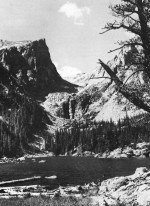The U.S. Geological Survey Water Resources Division (WRD) has proposed collaborative efforts with the LTER Network to conduct long-term intersite comparisons and evaluate the effects of climate change over a gradient of biome conditions, work already underway at several sites. Under the U.S. Global Change Research Program, the objective of the work would be to improve the understanding and prediction capability of especially surface water, groundwater, and soil moisture to changes in atmospheric conditions, and to provide the scientific basis for improving the representation of terrestrial hydrologic systems in fully coupled land-atmosphere models.
One part of the Survey’s program in global change research is Water, Energy, and Biogeochemical Budgets (WEBB), an in-house program scheduled to begin in FY 1991 that will provide basic data collection, historical, and process-level studies at 13 sites.
The Water Resources Division’s complementary strengths are in the areas of measurement and modeling of various aspects of the water budget, especially streamfiow and groundwater; nutrient fluxes in aquatic systems; geochemical processes in streams, the unsaturated zone, and the saturated zone; and some aspects of aquatic ecology. Collaborative work of this kind has already been conducted with Konza Prairie LTER, and discussions are underway between WRD hydrologists and scientists at H.J. Andrews, Sevilleta, and the potential new Antarctic Dry Valleys LTER.
Since February, USGS district and research scientists have actively been seeking to initiate additional collaborative LTER relationships. At least five more sites have expressed strong interest in participating in a joint program.
For more information contact Robert M. Hirsch, Assistant Chief Hydrologist, Research & External Coordination, USGS/WRD, WGS-Mail Stop 436, Reston VA 22092.


 Enlarge this image
Enlarge this image